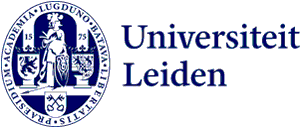Didactics - Examination
Course for (new) members of Leiden University boards of examiners
Share and learn about the tasks, responsibilities and power of the board of examiners.
- Target group
-
Lecturer
Guest - Teachers
- Maarten Bergwerff (Policy Officer) Judith Vels-Kaandorp (Advisor ICT and Education) Marc den Besten (Senior Jurist)
- Method
-
Training course
- Questions
- trainingoffice@llinc.leidenuniv.nl
When you become a member of a board of examiners, you are faced with many questions:
- What tasks, responsibilities and power does the board of examiners have?
- How do the board of examiners, department administration and faculty board relate to each other?
- How can the board of examiners safeguard the quality of testing?
- Who is involved in the assessment process, and what responsibilities does everyone have?
- How can the board of examiners advice examiners to make good tests that meet certain quality criteria?
- How does one verify whether all the testing in the degree programme as a whole covers the learning objectives?
- How transparent is the assessment of final thesis in your curriculum?
- What role does the board of examiners have in the context of an audit or accreditation?
Questions like these, as well as your own questions, will be discussed in this course, which is offered to you by the Faculty of Humanities, Legal Affairs and LLInC.
The course is taught in English.
Target group and time investment
This course is intended for all new members of Leiden University boards of examiners. However, it is also appropriate for sitting members of such boards who need to improve their knowledge and exchange information. In the course it is assumed that you already have a basic knowledge of testing, such as required for the Basic Teaching Qualification (BKO).
The course consists of two meetings, each of which lasts one morning. Participants also need 4-6 hours to do the required readings and prepare assignments.
Programme
During the course you will be introduced to rules and guidelines relevant for boards of examiners from the Higher Education and Research Act (WHW). You will learn which players are involved in the assessment process and who is responsible for what. You will learn what an assessment plan is and what requirements a good plan needs to meet. You will also learn what quality criteria an examiner needs to take into account. At the end of the course you will know the most important legal regulations, how to fulfil your role and how your board of examiners can monitor the quality of the assessment programme. During the course a number of concrete cases will be discussed, and there will also be opportunities to bring up cases of your own.
After completing this course, you will be able to:
- Distinguish the responsibilities of the board of examiners from the responsibilities of other parties involved;
- Explain the most relevant legislation for boards of examiners;
- Advice teachers how they can make good tests that meet certain quality criteria for testing;
- Determine for which tasks your board of examiners can and cannot give a mandate;
- Assess the quality of your assessment program;
- Evaluate the transparency of final thesis assessments.
More information
Are you interested in this course? Please contact the trainer: Judith Vels (LLInC) or dr.ir. M. (Maarten) Bergwerff (Geesteswetenschappen)
Price
- €250 for Leiden University and LUMC staff
- €350 for other participants
